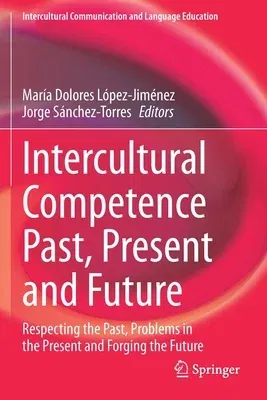Intercultural Competence Past, Present and Future: Respecting the Past, Problems in the Present and Forging the Future (2021)Paperback - 2021, 9 January 2022

Qty
1
Turbo
Ships in 2 - 3 days
In Stock
Free Delivery
Cash on Delivery
15 Days
Free Returns
Secure Checkout
Part of Series
Intercultural Communication and Language Education
Print Length
280 pages
Language
English
Publisher
Springer
Date Published
9 Jan 2022
ISBN-10
9811582475
ISBN-13
9789811582479
Description
Product Details
Book Edition:
2021
Book Format:
Paperback
Country of Origin:
NL
Date Published:
9 January 2022
Dimensions:
23.39 x
15.6 x
1.52 cm
ISBN-10:
9811582475
ISBN-13:
9789811582479
Language:
English
Location:
Singapore
Pages:
280
Publisher:
Weight:
408.23 gm

